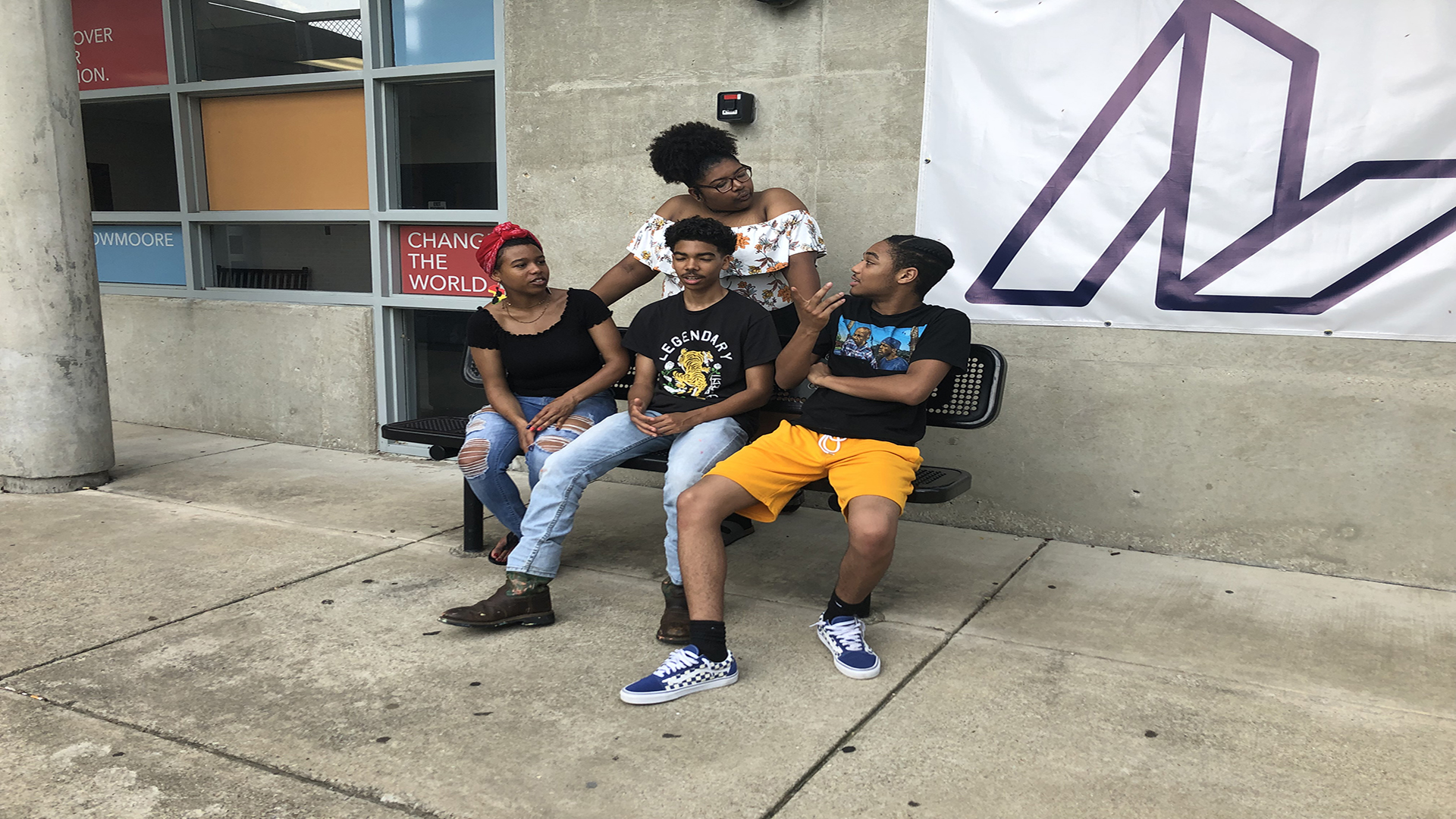LOUISVILLE, Ky- It all started with an idea from a Moore High School sophomore.
“I kind of wanted them to teach more positive aspects about Africa what happened before slavery and all these other things so African-Americans actually know where they come from instead of just thinking they came from slavery,” Sariah Mason tells Spectrum News 1.
The idea quickly turned into a movement with other students involved with the Aspen Challenge joining in the effort to change the way history is taught in Kentucky schools.
“It’s not like we are reinventing the wheel or doing something especially different, things like this you have to try, and try, and try again,” said Ariana Tulay, a recent graduate of Moore High School. “Like Sariah said, something like this has never happened in Kentucky so it’s that continuing to try and try again and finding your tribe I think was the process and just telling what we wanted and what the people who had tried before wanted and just creating that together.”

Once the idea was formed the group of students set out to contact lawmakers in Frankfort—and it worked, Louisville Representative Attica Scott prefiled a bill that requires middle and high schools in Kentucky teach African-American and Native American History as a part of their curriculum.
“It’s so important, one, that students brought this to me as a legislator, that they were willing to say I’m going to reach out to a state rep and ask them to file this bill and in their request they said that we don’t feel like we’re being taught the true history of ourselves as African-American students so that was important,” Rep. Scott said. “But it is also important for white students and students of other ethnicities to learn about this history because so far what they are learning is that basically the history of African-Americans started with slavery and the history of native Indians started with colonization, well there was actually a whole bunch of people here before this country was colonized and that history should be valued and respected and taught.”
Feeling underrepresented in their studies was a main driving factor for the students to push for change.
“In school they just teach about slavery, all the negative parts, and Egypt those are the only places,” said Josue Velasquez, an incoming sophomore at Moore High School. “They don’t talk about Kenya, or any of the other places.”
“I think it not only helps African-American students know who they are internally and know their greatness but it helps other race students to know about that part of African-American history,” said Tulay. “It allows African-Americans to see themselves in what they are learning I think it is just on so many different levels something than can be amazing.”
The students believe making everyone feel represented can help more students become involved in school.
“By introducing them a new topic about where they come, their history before America, because African-American is two words—so you need to know about African as well as American,” said Gary Jones Jr, an incoming senior at Moore High School. “By understanding both parts it will have people say okay I like this part of school, it’s going to make me more involved with social studies and being more involved with social studies will make you want to come to school.”
The group of students hopes their success can show their peers you are never too young to try and make a change in your community.
“You can create change and we can create our state, our country, to be what we want it and to hold the values that we see fit,” said Tulay. “And I think going and being involved in politics is one of the greatest ways to do that.”
“If we’re the future leaders then lead,” said Velasquez. “We have to talk and tell them how we want things done so in the future we live in a place we’re we feel comfortable in.”
“I feel like most people think they don’t have a voice because they never used it, they never been told to use it, they’ve never had other people share the same strong opinions as them,” said Jones. “But I feel like by having the smart team doing this it will show them that you have voice, it matters we’re doing the same thing, we got your back.”
For the architect of the idea, Mason is still reeling in her success.
“I really wasn’t expecting all of this to happen and I’ve also talked to other activists who tried to email legislators and it hasn’t really gone this far so the fact that it is I’m just excited for it and I’m just blessed because I didn’t actually expect that to happen,” she said.
The bill can be found HERE.


